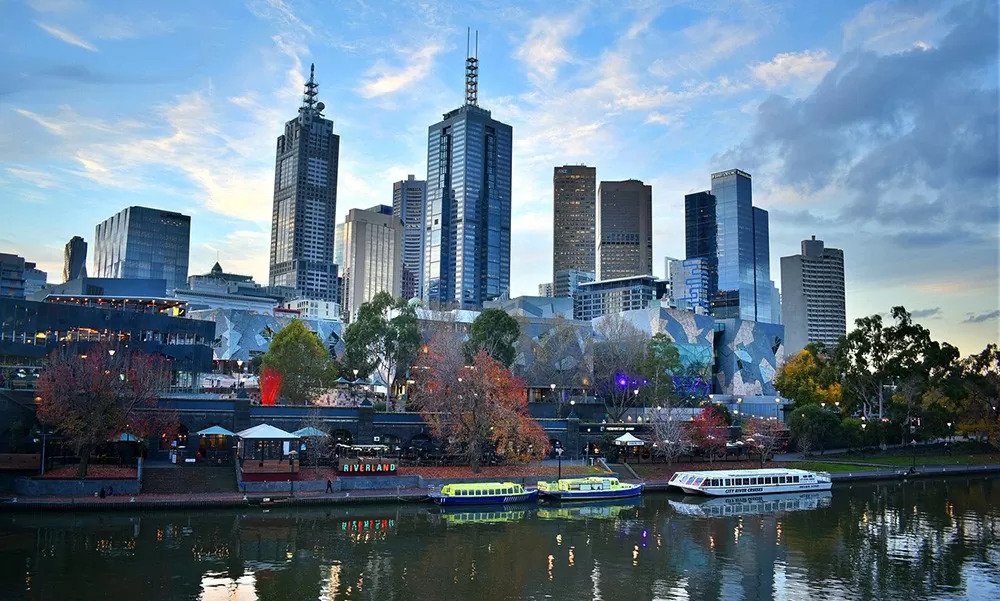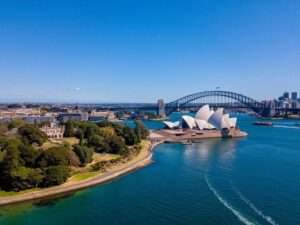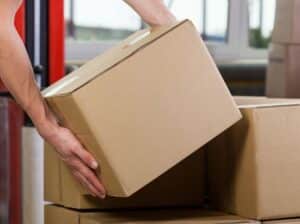
Thinking of Moving to Melbourne, Australia? Where do you start planning your move? To make your trip to this dynamic city as easy as possible, read this guide. Because Melbourne is so far away, it’s vital to plan ahead: it’s simple to integrate into the culture if you know English, but moving your belongings and bringing your pet in can take months. So, we have compiled the things you need to know before moving to Melbourne.
Moving to Melbourne, you must carefully assess the advantages and disadvantages of the relocation process. One factor to consider is the city’s remote location: Melbourne, the capital of Victoria State, is located on the southernmost tip of Australia’s island. Driving to Sydney takes about nine hours, and driving to Canberra, Australia’s capital takes about seven hours. Because of the distance between major cities and other nations, transporting your items to “the land down under” might be a lengthy operation.
The relative isolation, which makes moving difficult, is also an appealing feature. Melbourne is popular with expats since it is adjacent to gorgeous beaches while also offering a diverse range of cultural events such as ballet and opera. When you can eat breakfast with friends or go to one of the numerous sports stadiums to watch a game, the effort spent making sure your relocation is successful (even the application process to import your pet can take up to two months) will be well worth it.
Before going to Melbourne, read this guide to learn everything you need to know. Learn about the visa you’ll need and how to get it, as well as our top suggestions and recommendations for a stress-free migration.
Many ex-pats, particularly those from the United Kingdom, Ireland, China, Italy, and Germany, who make up some of the city’s largest ex-pat populations, dream of relocating to Melbourne. In 2018, around 90,000 people moved to Melbourne, joining the 58 percent of Melburnians who have one or more parents who were born elsewhere.
Melbourne is clearly a popular tourist destination. In the InterNations Expat Insider poll, the city is consistently ranked among the best locations to live, and immigration is expected to help the city grow substantially over the next decade. But why should you relocate to Melbourne? What do you need to know to arrange your relocation once you’ve decided to go there?
Any overseas transfer, especially one to an island where belongings must be flown or brought in, has advantages and disadvantages. We take a look at some of the specific benefits and drawbacks to keep in mind as you plan your relocation to Melbourne.
A wonderful educational system. Melbourne’s public education system includes a number of well-known schools and also welcomes ex-pat children. Your children will be able to attend a public school regardless of their visa status.
Healthcare of the highest caliber. Melbourne is home to some of Australia’s best hospitals. Expats moving here need not worry about finding medical facilities or specialists because the city is sure to have someone who can assist them.
A warm welcome awaits you. Melbournians, like other Australians, are recognized for their openness and friendliness. Melbourne is known as Australia’s most multicultural city, and there is a strong ex-pat culture and tolerance of variety.
It’s possible that shipping your goods can take longer than you expect. Melbourne is located on Australia’s southernmost tip, keeping it somewhat isolated from other significant cities and countries. If you don’t plan ahead while shipping your possessions, you may have to wait a long time for them to arrive.
There are strict guidelines for relocating pets. Every pet that arrives in Melbourne must spend ten days in quarantine. This is in addition to a lengthy list of required vaccines and a two-month import application process. In our Moving with Pets to Australia guide, you can learn more about pet relocation.
The price of living. Because city salaries are higher, your living expenditures should be paid. However, unless you have a well-paying career, conserving money will be difficult. You may find yourself having to sacrifice a night out for a night in more frequently than you’d prefer.
Expats who speak English will find it quite easy to settle in Melbourne and blend into the local culture. You may easily meet friends, learn about Melbourne’s history and culture, and participate in all of the activities that make it so enjoyable. Finding a job and a place to live should also be easy because most business is performed in English. Similarly, if you are a natural Mandarin or Cantonese speaker who also speaks English, moving to Melbourne is not difficult. The city has a significant Chinese population, and many street signs are written in both English and simplified Chinese characters.
Taking the plunge and relocating to this global metropolis is a significant decision. Read our relocating to Melbourne tips and advice to get ready for your move, or contact us to schedule a relocation consultation call to go over your options in greater depth.
Melbourne has a well-developed public transportation system, so you won’t need a car to get around. If you have a young family, on the other hand, having a car will be more important to go around the city in the rapidly changing weather and to avoid crowded public transportation. More information can be found in our guide to driving in Australia.
The public school system is open to any youngster living in Australia. This is fantastic news for ex-pats: outside of Asia, Australia has one of the strongest education systems in the world, with tuition typically costing only a few hundred Australian dollars per year. You’ll need proof of your address, proof of your child’s age, and proof of their present level of schooling to enroll in most public schools.
Melbourne also has a number of well-known private and foreign schools. These normally necessitate the child taking an entrance exam and are more expensive (more than 10,000 AUD (6,550 USD) per year.
You will be able to bring your pet to Melbourne if it is not on a banned breeds list. This entails completing a months-long import process, which includes thoroughly vaccinating your pet and placing them in quarantine. Our Moving with Pets to Australia guide will walk you through the entire process.
You should be informed that once your pets arrive in Melbourne, they must be microchipped and registered with a local council, or you will be fined 330 AUD (215 USD). When walking in public, including playgrounds and BBQ areas, dogs must be on a leash, and you must always clean up after your dog. Dogs are allowed off-leash in eight parks in Melbourne; a map of these parks may be found on the City of Melbourne website.

If you want to migrate to Melbourne, you can apply for a variety of visas and work permits, depending on your status and qualifications. If you want to stay in this city for a long time, you’ll most likely need a Skilled Worker Visa or an Employer Nomination Scheme (ENS) visa.
To be eligible for one of these two visas, you must complete the following requirements:
Visas & Work Permits Australia guide has a complete list of available visas as well as more information about the health check, points system, and how to apply for the visa.
With a regular Australian visa and no further papers, you can move to Melbourne. However, the Victoria State government may be able to provide you with a Victorian visa nomination, which will help you with your visa application. This nomination may improve your chances of obtaining a visa.
To be eligible, you must meet all of the requirements for the Australian visa for which you are seeking. To be nominated, you must also meet the requirements set forth by the Victorian government. This could be for a company visa or a skilled worker visa. Finally, you must commit to permanently residing in Melbourne (or the state of Victoria). Visit the Victoria Government’s official website for further information.
How does it feel to live in Melbourne? Every ex-pat wants to know the answer to this question. We delve into what it’s like to live in Melbourne and what it’s like to be a Melbournian. This city guide covers everything from how much transportation costs to how safe certain groups of people, such as women living alone and the LGBT+ community, are in the city. Our top recommendation is to purchase a Myki card, which can be used to pay for tram, rail, or bus rides.
You can also find information regarding Tax File Numbers (TFNs) and Medicare, as well as other key activities that should be on your to-do list and will assist you in settling in within the first few weeks. For example, did you know that you need a TFN to work and open a bank account? When you first move to a new city, it’s easy to overlook these minor details.
If you’re more concerned with where to live in this city, our tour takes you through four fantastic areas. Learn everything there is to know about buying or renting in regions ranging from the affluent Malvern district to the low-cost Sunshine neighborhood. We also look at how the average rent in the city (approximately 420 AUD or 280 USD per week) varies by neighborhood and what it takes to get your dream property. Learn more about what it’s like to live in Melbourne.
Melbourne is a somewhat costly city to live in, thus most ex-pats find it necessary to work there. This section contains all you need to know if you don’t have a job set up and want to work in Melbourne, or if you want to learn more about becoming an entrepreneur in this exciting city. It includes detailed information on the employment market in this area, as well as tips on how to increase your chances of landing your desired job. Networking and where to look for freshly open positions are among the topics covered.
Related Articles:





